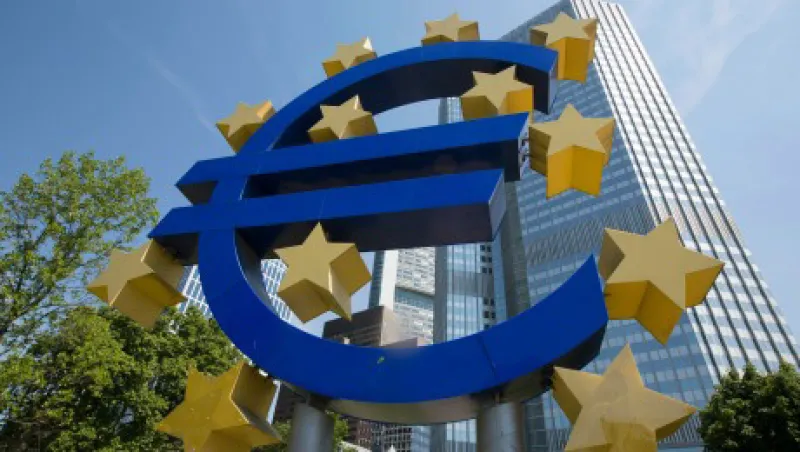The European Central Bank’s announcement today comes against a backdrop of geopolitical uncertainty. As jitters over the Russian troop buildup and historically high U.S. equity valuations fail to drive any follow-through to last week’s market volatility, investors globally continue to have a nervous wait-and-see stance while waiting for the next shoe to drop. This market sentiment of treading water continues to be hit on as a theme by market observers. In a note released this morning titled “The Funky Drummer Market,” Nicholas Colas, chief market strategist with ConvergEx Group, a New York–based global brokerage firm that caters to institutional investors and financial intermediaries, wrote: “Everything feels so...familiar. And not necessarily in a good way. When we hear phrases like ‘bubble markets,’ ‘M&A cycle,’ ‘historically low yields,’ and ‘retail investor buying,’ our minds automatically flash back to prior periods of history when those phrases last dominated the headlines.”
The BOE and ECB hold rates steady. Both the Bank of England and the ECB kept benchmark interest rates unchanged when they made their monthly announcements today. Today’s press conference appearance by ECB President Mario Draghi will likely dominate the European market narrative for the rest of the work week as he addresses sustained low inflation measures and the economic spillover from tensions between the European Union and Russia.
Saber rattling in Russia. A move by Russia to place bans on food imports from the U.S. and the EU is the latest escalation in sanctions between the West and Russian President Vladimir Putin over tensions in the Ukraine. This move will be painful for both Western producers and Russian shoppers, as Russia is the largest single buyer of EU produce and the second-largest consumer of U.S. poultry exports.
The earnings parade continues. U.S. large-cap equities reporting second-quarter 2014 earnings today include financial services firm Apollo Investment Corp., Duke Energy and real estate development firm St. Joe Co. In Europe, Zurich Insurance Group announced earnings this morning that exceeded consensus forecasts with an operating profit growth on 13 percent higher than the same period in 2013. This gain was led in part by cost-cutting measures at Switzerland’s largest insurer.
U.S. economic data on tap this morning. Initial jobless claims for the week fell to an eight-year low of 289,000 from a prior 303,000 new job seekers — significantly lower than consensus forecasts. With the most recent guidance provided by the Federal Market Open Committee’s announcement last week squarely pegged to labor markets, today’s release stands to have a significant impact on market sentiment. Separately, consumer credit data for May is due from the Federal Reserve this afternoon, with consensus expectations for a slight moderation in the pace of debt expansion as revolving-credit debt measures continue to bring good news for retailers. In a research note released this morning, BMO Financial Groupchief economist Douglas Porter predicted that yesterday’s positive trade data surprise will prompt the U.S. Bureau of Economic Analysis to increase second-quarter GDP growth level estimates.
German industrial production disappoints. In the first year-over-year contraction in 11 months, German industrial production fell 0.5 percent for June. In the wake of yesterday’s unexpectedly soft factory orders for the same month, as well as deteriorating PMI levels in recent weeks, a decelerating trend for German industrial companies is emerging.
A record fine for Bank of America. Charlotte, North Carolina–headquartered Bank of America is expected to announce a record fine of up to $17 billion in a settlement with the U.S. Department of Justice — the largest such settlement to date — according to reports. This would resolve the federal investigation into the bank’s mortgage-backed-bonds sales practices.
Portfolio Perspective: Will U.S. markets listen to Draghi? — Robert Savage, CCTrack Solutions
The main U.S. news today — jobless claims — are unlikely to matter much to the risk mood. What will drive U.S. markets is Europe with shares there lower and waiting for something good to happen to get back to flat after three down days. There are a number of questions that Draghi has to answer. The first is growth: Is there anything the ECB can do to help steady the floundering recovery? The answer lies with the banks with the targeted longer-term refinancing operation (TLTRO) likely to be pushed along with some modest asset-backed-securities talk. The next question is on Russia: Is risk from food and energy embargoes from Russia going to shift the way the ECB looks at inflation data? Draghi will have to do some fancy talking to avoid making energy a nonrisk to the ECB policy framework. The third question is deflation: Falling inflation expectations is the central problem for the ECB and something that will likely make Draghi sound more dovish. The last question involves politics: Will the problems for European Commission president-elect Jean-Claude Juncker, Italian Prime Minister Matteo Renzi and others get more intense as the fiscal room to stoke growth seems limited against a structural reform agenda?
Robert Savage is the CEO of CCTrack Solutions, a New York–based hedge fund firm. CCTrack is backed by Citic Capital Holdings, which in turn is backed by the sovereign wealth funds of China and Qatar.






